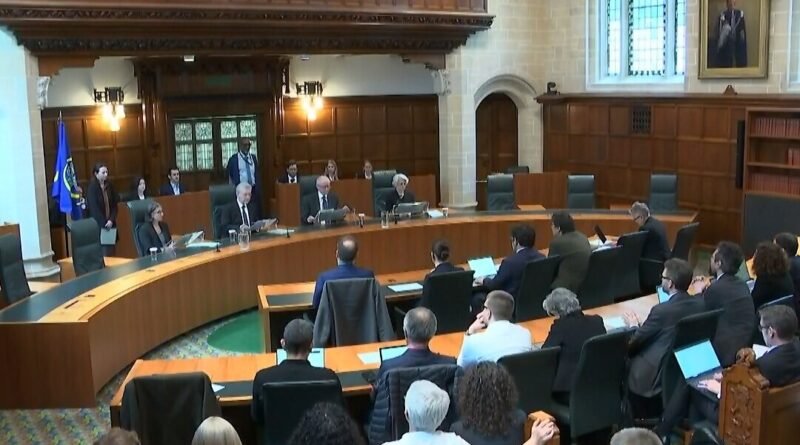Implications of UK Supreme Court Transgender Judgment Reach Across Various Aspects
Men who identify as transgender will not be legally allowed to use single-sex female toilets, changing rooms, or compete in women’s sports following a landmark Supreme Court ruling, as stated by the head of Britain’s equalities watchdog on April 17.
Equality and Human Rights Commission (EHRC) Chairwoman Baroness Kishwer Falkner described the ruling, which occurred the day before on April 16, as “enormously consequential” and providing clarity to previously legally ambiguous areas. She announced intentions to pursue organizations that do not update their policies in accordance with the ruling.
The highest court in the land determined that the terms “woman” and “sex” in the 2010 Equality Act specifically refer to biological women and biological sex. This means that men with a gender recognition certificate (GRC), which legally acknowledges their gender as female, can be excluded from single-sex spaces if deemed “proportionate.”
Alba Party MSP Ash Regan, who resigned as an SNP Scottish Government minister in 2022 over gender reforms, has initiated a motion in Holyrood urging the Scottish Government to promptly ensure that public bodies comply with the law and implement the ruling.
NHS nurse Jennifer Melle is pursuing legal action against Epsom and St Helier University Hospitals Trust after receiving disciplinary action for denying to address a transgender paedophile as “Mr.”
The EHRC, responsible for enforcing the Equality Act in England, Wales, and Scotland, highlighted the importance of the ruling in bringing clarity to previously uncertain areas.
Claims Judgment ‘Brings Clarity’
Falkner emphasized that organizations must review the 88-page judgment carefully to understand its implications and ensure compliance. When asked about the participation of trans-identifying men in women’s sports, she confirmed that they are not allowed.
Regarding changing rooms and toilets, Falkner clarified that single-sex services such as changing rooms should be based on biological sex. She suggested that trans rights organizations advocate for third spaces like unisex toilets instead of pushing for access to facilities intended for the opposite sex.
Concerns have been raised about the potential normalization of non-gendered spaces, and the practical enforcement of keeping trans-identifying males out of women’s private spaces remains unclear.
The commission is swiftly incorporating the implications of the judgment into the code for public bodies, outlining their duties under the Equality Act. An updated statutory code of practice is expected to be presented before Parliament by the summer.
Falkner stated that the commission will take action against organizations that fail to comply with the law, using enforcement and compliance measures as necessary.
NHS Policy and Legal Battles
The NHS will need to revise its 2019 policy on single-sex wards to align with the recent court ruling, ensuring clarity and compliance moving forward.
Care minister Karin Smyth expressed hope that the ruling will resolve gender recognition disputes, acknowledging the need for further clarification on its implementation.
She assured that the NHS and other public bodies will adhere to the judgment.
Criminal Justice and Sports
British Transport Police has adopted a new interim position requiring trans people held in custody to be strip-searched according to their birth sex.
The judgment highlighted the need for coherence in legal provisions related to women’s participation in sport, addressing previous confusion and impracticalities.
Sporting bodies and educational institutions must observe the law and cease treating transgender-identified athletes as the opposite sex.
Trans-identifying individuals are legally safeguarded from discrimination based on their gender identity under the Equality Act, regardless of possessing a GRC.
The ruling’s impact on GRCs and the increasing number granted raise questions about their legal significance and purpose.
The ruling curtails demands for GRCs to equate to biological sex in legal contexts, marking a significant shift in legal interpretation.



